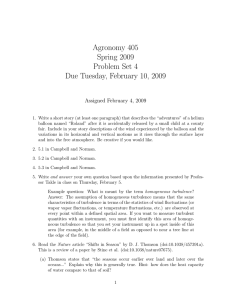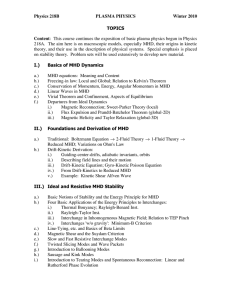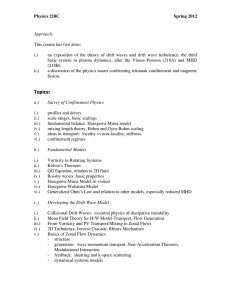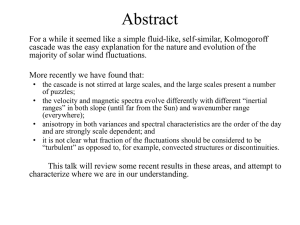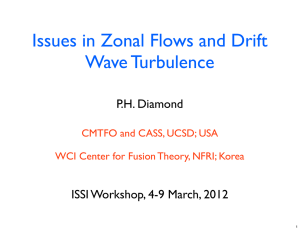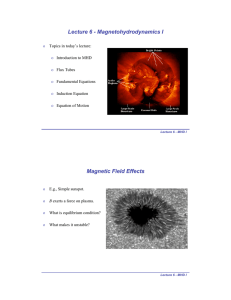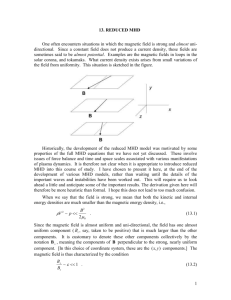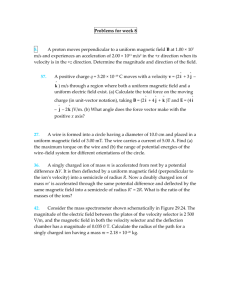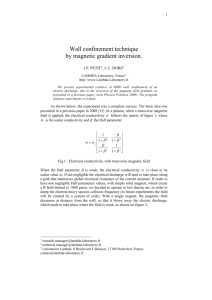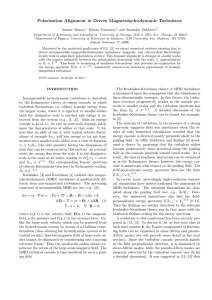The Structure of MHD Turbulence
advertisement
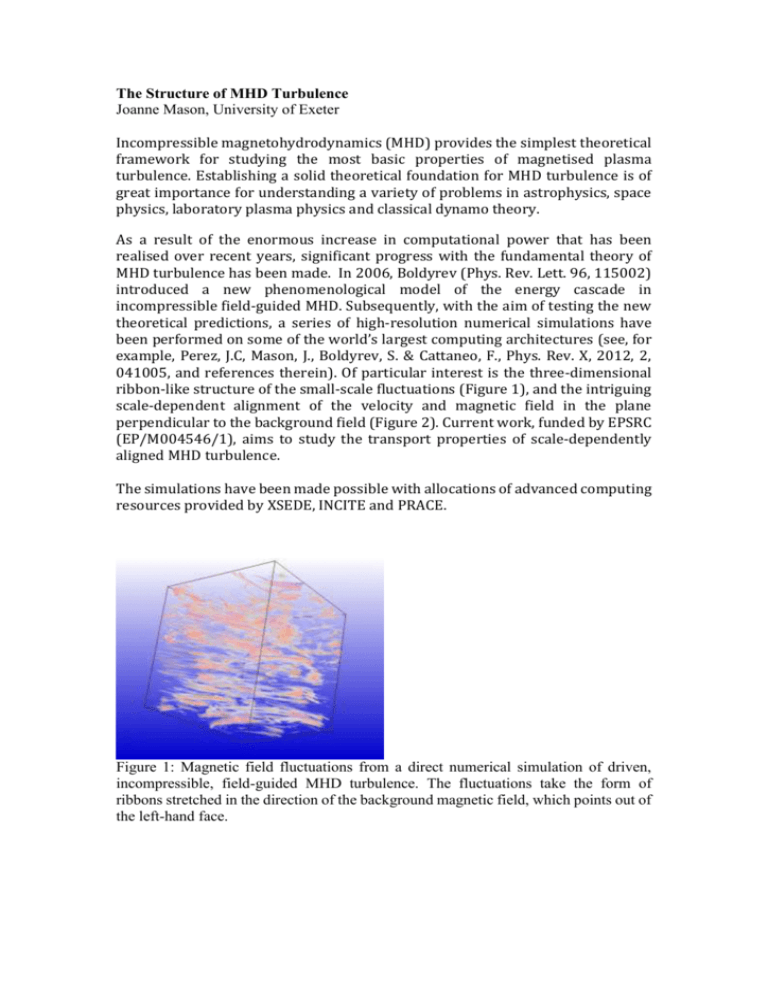
The Structure of MHD Turbulence Joanne Mason, University of Exeter Incompressible magnetohydrodynamics (MHD) provides the simplest theoretical framework for studying the most basic properties of magnetised plasma turbulence. Establishing a solid theoretical foundation for MHD turbulence is of great importance for understanding a variety of problems in astrophysics, space physics, laboratory plasma physics and classical dynamo theory. As a result of the enormous increase in computational power that has been realised over recent years, significant progress with the fundamental theory of MHD turbulence has been made. In 2006, Boldyrev (Phys. Rev. Lett. 96, 115002) introduced a new phenomenological model of the energy cascade in incompressible field-guided MHD. Subsequently, with the aim of testing the new theoretical predictions, a series of high-resolution numerical simulations have been performed on some of the world’s largest computing architectures (see, for example, Perez, J.C, Mason, J., Boldyrev, S. & Cattaneo, F., Phys. Rev. X, 2012, 2, 041005, and references therein). Of particular interest is the three-dimensional ribbon-like structure of the small-scale fluctuations (Figure 1), and the intriguing scale-dependent alignment of the velocity and magnetic field in the plane perpendicular to the background field (Figure 2). Current work, funded by EPSRC (EP/M004546/1), aims to study the transport properties of scale-dependently aligned MHD turbulence. The simulations have been made possible with allocations of advanced computing resources provided by XSEDE, INCITE and PRACE. Figure 1: Magnetic field fluctuations from a direct numerical simulation of driven, incompressible, field-guided MHD turbulence. The fluctuations take the form of ribbons stretched in the direction of the background magnetic field, which points out of the left-hand face. Figure 2: Three grey-scale plots of the cosine of the alignment angle between the velocity and magnetic field fluctuations in a plane perpendicular to the background magnetic field. Black (white) regions denote highly aligned (anti-aligned) fluctuations. The velocity and magnetic field have been filtered at decreasing scales (left - right).
